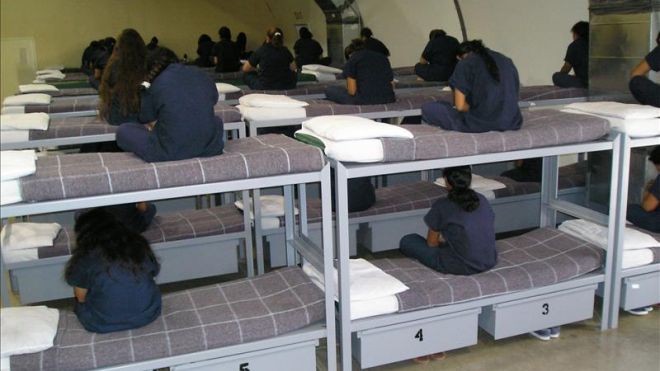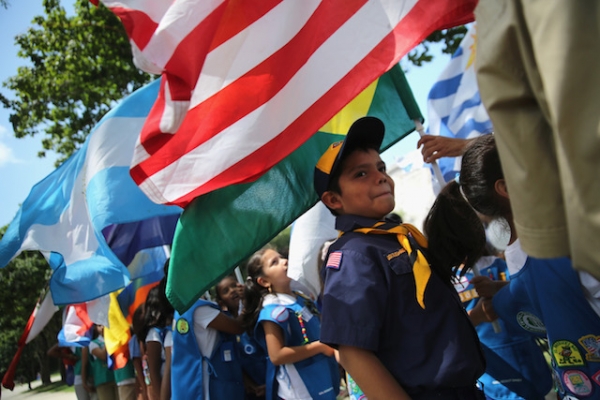Nearly 100 women held in Texas immigration detention center on hunger strike
AUSTIN – Close to 100 women being held in a detention center for immigrants in Hutto, Texas, have joined a hunger strike asking for their release and better living conditions, especially in regard to medical attention.
Twenty-seven women had started the strike on Oct. 28.
Cristina Parker of Grassroots Leadership, an organization that advocates for the release of detained immigrants, told EFE that the women – mostly from Mexico and Central America – are being held in detention centers while their asylum claims are being looked at. They could be deported if their cases are rejected.
After almost two weeks on a hunger strike, from now on the detainees will be taking turns.
Parker explained that the women being held in the three pavilions of the Hutto detention center will be striking in three shifts, one pavilion at a time.
“We want to prevent reprisals (by doing this),” said Parker, adding that six of the women who began the protest have been transferred to other centers in the state, four to Laredo and two to Pearsall, near San Antonio.
The hunger strike in Hutto goes hand in hand with those in three other detention centers across the country: in El Paso, Texas; La Salle, Louisiana, and Adelanto, California.
“The protests are connected, inspired by each other, but there is no communication, they are not coordinated. This makes one think they are growing,” explained Parker.
Texas United Families, a pro-immigrant rights group, has started a campaign asking the U.S. Immigration and Customs Enforcement (ICE) to release the women who have been moved to other centers and also one who they claim was put in isolation during the protest.
“Instead of punishing these women who are seeking asylum in the U.S. and who have been detained for over six months, ICE must release them and allow them to continue with the process from their homes, with their families,” said Rocio Villalobos, of Texas United Families.
The asylum application process can take months or even years, a period during which several women are likely to develop post-traumatic stress disorder, anxiety or depression.



